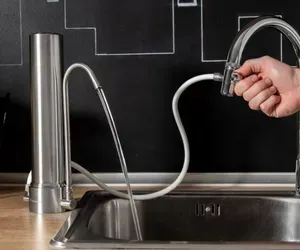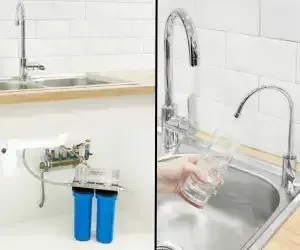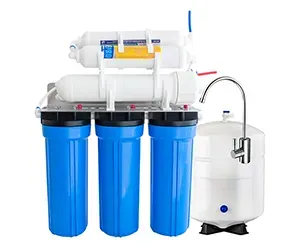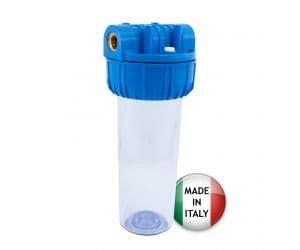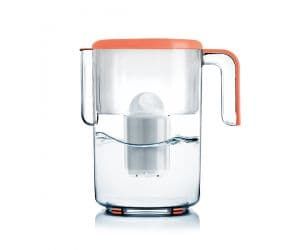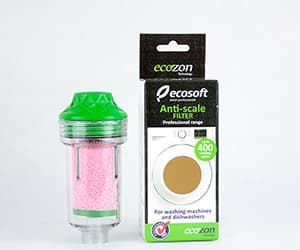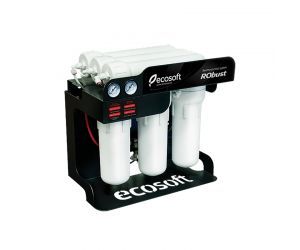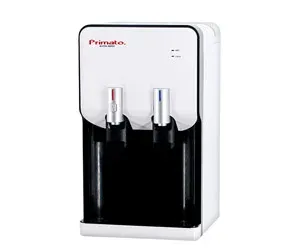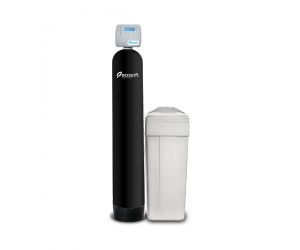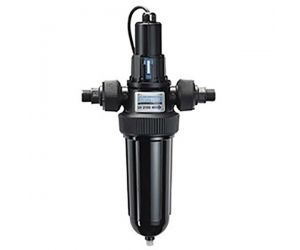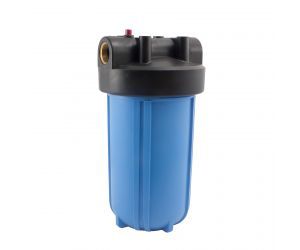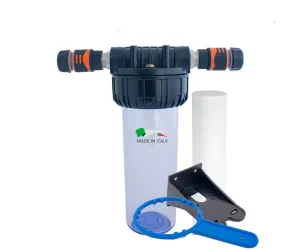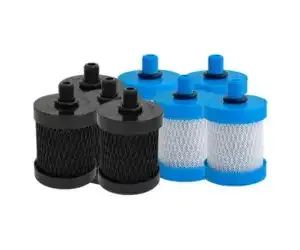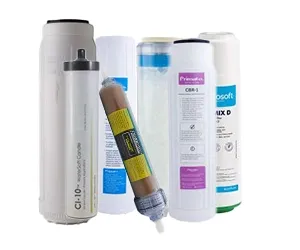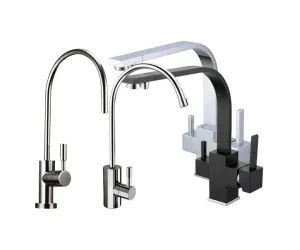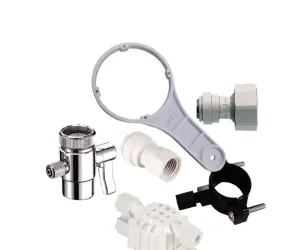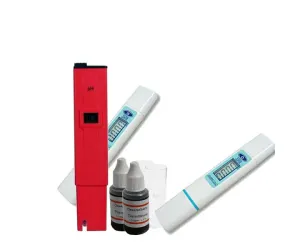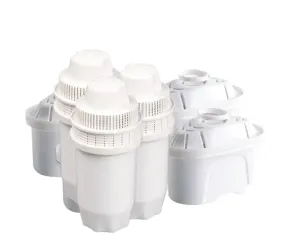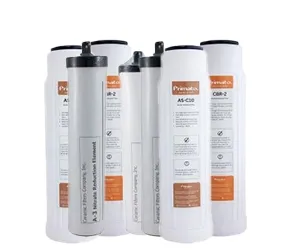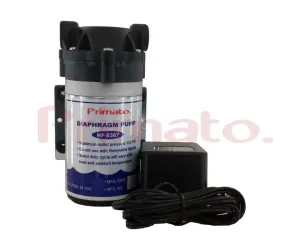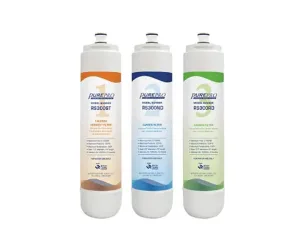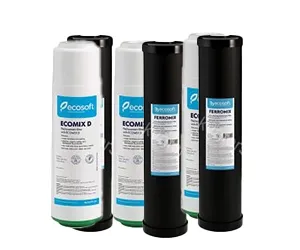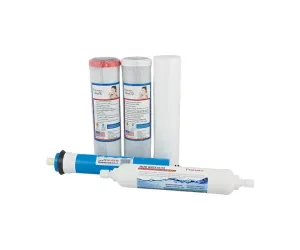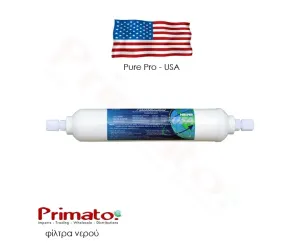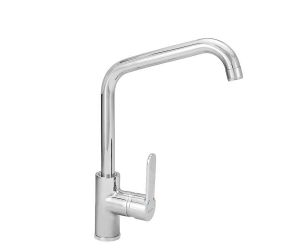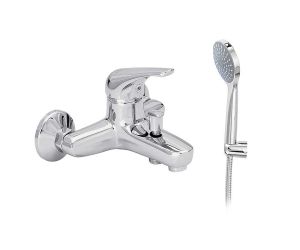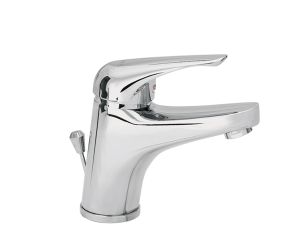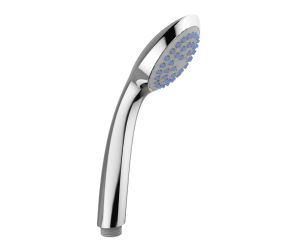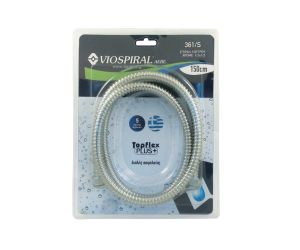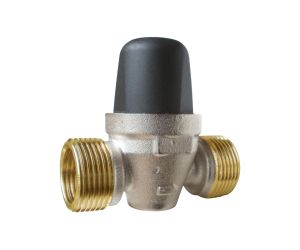Russian water filters with aragonite - Purchase guide
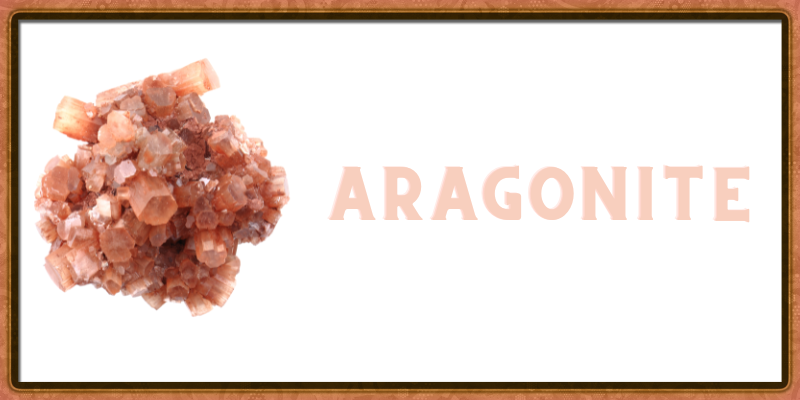
Aragonite takes its name from the Spanish city of Molina de Aragon and is a carbonate mineral, one of the three most common crystalline forms of calcium carbonate (CaCO3) found in nature. The other forms are the minerals calcite and vaterite. It is formed by biological and natural processes, including rainfall from sea and freshwater. Aragonite is a polymorph of calcite, which means that it has the same chemistry as calcite, but has a different structure, and most importantly, different symmetry and crystal shapes. Aragonite is formed in hot springs and geyser deposits, in stalactites and boulders on the seabed and is gradually converted to calcite. Geysers are named after one of the largest hot spring in Iceland, which translates as "gushing" in the local language.
This article is for all of you who are thinking of buying a Russian water filter with aragonite for your home. To begin with, let's see what aragonite is.
What is aragonite?
Uses of aragonite
Aragonite is considered essential in aquariums as it helps to reproduce the conditions of the reefs. It also tries to keep the pH of the water close to its natural level to prevent the dissolution of biogenic calcium carbonate
Aragonite in water filters
According to Russian sources, it has been successfully tested for the removal of pollutants such as zinc, cobalt and lead from contaminated wastewater. Another use is the reduction of hardness of water. Activated carbon filters containing aragonite as well as ion exchange resin are commercially available. These filters use aragonite as an absorption filter, where its hard and compacted surface does not allow solids and some harmful substances to penetrate the filter. After the water has passed through the aragonite layer, then the activated carbon and the ion exchange resin undertake to remove the harmful substances from the water. These two combined show good results on the common water of city networks in Greece. The benefits of activated carbon in reducing chlorine, as well as the properties of ion exchange resins in reducing salts are known.
What other minerals can be used in water treatment?
Not all minerals can be used for water treatment. But the scientific community continues to experiment and test various minerals that could be used in water and wastewater treatment. For years, however, activated carbon water in the market are "tied" with zeolites of volcanic origin.
What is Zeolite?
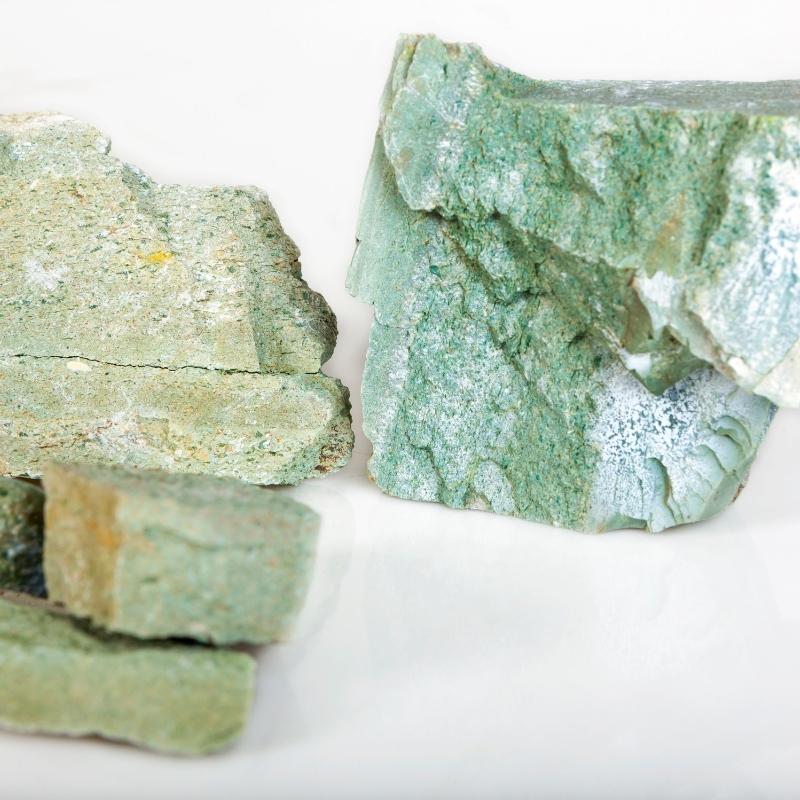
Zeolite is a mineral of volcanic origin that, due to its special chemical property, is used in the water treatment industry, environmental protection, crops, agriculture, etc. It was named in 1756 by the Swedish mineralogist Axel Kronstedt, who observed that rapid heating of stilbite produced a large amount of steam from the water absorbed by the material. So he named this material zeolite, from zeo (boil) and lithos (stone). Zeolites exist in many parts of the world, but are mainly found in areas with volcanic activity, such as in Greece. Due to their molecular structure, they have a very high ion exchange capacity and regulate the pH of water and soil to neutral. This is one of the reasons why zeolites have been used in agriculture for many years. Think of them as a "molecular sieve" that holds heavy metals, toxins, free radicals, as they are one of the few negatively charged minerals in nature.
Uses of Zeolite
Zeolites are widely used in domestic and industrial water treatment devices due to their ability to exchange ions. In chemistry, zeolites are used as molecule separators. They are also used in industry, environmental protection, fish farming, agriculture and livestock. Zeolites have been used in medicine since the mid-1960s. As a material, it is completely safe for humans and helps to detoxify the body, which is why there are many zeolite products on the market, such as zeolite pills that you can get from your local pharmacy.
Zeolites in water filters
Zeolites contain a significant amount of clinoptilolite that is used in nuclear treatment, as it can purify nuclear waste containing radioactive isotopes. One of the most important functions of zeolites is the ability to capture and eliminate heavy metals such as lead, mercury, cadmium, aluminum and iron without removing the good ions and metals. Zeolites trap calcium and magnesium ions and release sodium ions in their place, so with these water filters, your water will be softer and richer in sodium.
Activated carbon water filters with zeolites
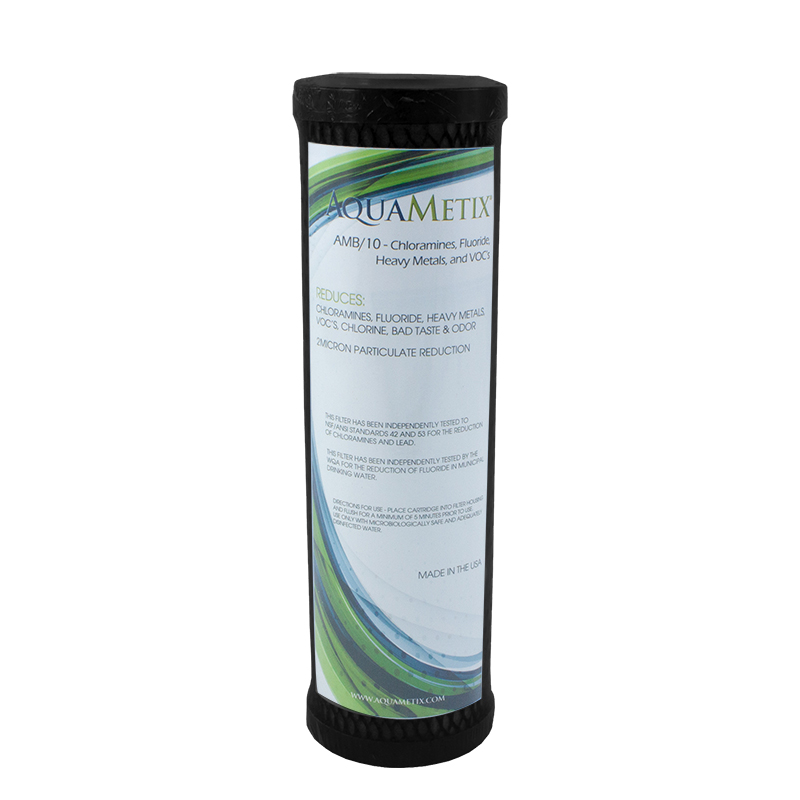
The only filtering medium currently available in the world that uses activated carbon in combination with zeolites is the Aquametix® filter which is a patented combination of two types of activated carbon with zeolites. Zeolites are combined with activated carbon through special polymers to create an extremely compact and porous water filter. Aquametix can be cut to different sizes to fit the various water filters on the market. It is made in the USA with raw materials of the highest FDA specifications, state-of-the-art technologies and performance unprecedented by Ceramics Filters Company Inc. It is the only combined filter that reduces chlorine, fluorides, lead, heavy metals, volatile organic compounds ( VOCs), compounds of drugs and pharmaceutical preparations, nitrates, arsenic, chromium, chloramines, herbicides, glyphosate, trihalomethanes, MTBE, aluminum, iron, mercury, zinc, industrial waste, turbidity and a very large number of hazardous elements, with a single cartridge. Aquametix has many American and European certifications. In fact, it is certified by the NSF, which is considered the best organization in the world for the certification of products related to water filtration. You can search the company's products on the NSF page by searching under the name Ceramic Filters Company.
Aquametix comes in:
- Spare part 10 '' for the classic devices of countertop and under-sink water filters
- Spare part for HCP, HCS, HCP TWIN, HCS TWIN, HIS, HIS TWIN types of devices
- Spare part for faucet water filters
- It can also be combined with a special bacteriostatic ceramic material, creating the spare filter CeraMetix which comes in the classic version but also in the version for HCP type of devices.
Find out some of the zeolite water filters available
Recent posts
- The Future of Water: How Primato Filters are Pioneering New Standards in Water Safety
- Primato's Journey at Aquatech Amsterdam: Building Bridges and Expanding Horizons
- The Journey of Water: From Source to Tap - Understanding the Filtration Process
- What are three way water filter taps?
- Shower water filters
- Commercial water filters for hotels, restaurants and cafes
- The reason why more and more people prefer undercounter water filters
- Zeolites in water treatment
- The water supply network of Athens
- The whole truth about water filters
- Russian water filters with aragonite - Purchase guide
- Choosing and buying a countertop water filter
- I live in Athens. Do I need a water filter?
- Water Filter Prices: Full Guide
- Does filtered water help with allergies?
- 10+ reasons to add more water to your lifestyle!
- Zeolite: A natural mineral in the service of water filtration
- Thessaloniki Water: From the source to the glass
- Meet the Greek Water Filters Manufactured in Thessaloniki
- Water Filters with Zeolites
- Turning a coconut into activated carbon
- Thessaloniki: Which Are The Best Water Filters?
- Tap water in Greece: Is it safe? The problems and the solutions
- How to Choose the Right Replacement Filter
- Ultra filtration and Hollow Fiber Membranes explained
- How hard is water in Thessaloniki?
- Whole house water filter cartridges - How to choose the right one!
- Countertop water filters - What to look for before I buy
- Do I need a water filter if I live in Athens?
- Everything you need to know about tap water filters
- Under-sink water filters - Everything you need to know
- Reverse Osmosis - What is it and how it works
- World Water Day - 22 March
- Primato goes sailing!
- What are water filters?
- Reverse Osmosis - Perfect for islands, drilling water and aquariums
- What is the activated carbon found in our water filters?
- Arsenic in the Water - The ubiquitous venom
- Hexavalent Chromium - A Carcinogen That Should Be Reduced Immediately!
- Paranoia of alkaline water - Understanding PH

George Margiolos
George Margiolos was born in Thessaloniki and has graduated from the Department of Marketing of the Alexandreio Technological Educational Institute of Thessaloniki. He is fluent in English and (not so fluent) in German.
Ηe has been Project Manager at Avery Dennison - Fastener Division in the UK. There, his main project was to redesign the company's products into new applications so as to become more environmentally friendly. In combination with the fact that in the UK people are more familiar with water filters, he has developed a love for environmentally friendly water filters, which reduce the use of plastic bottles and improving people's quality of life.
Since 2008, he has published over 300 unique educational and informative articles on water filters and new water treatment technologies.
Occasionally, universities and doctoral students request to use George Margiolos' articles in their research because of their quality and uniqueness.
